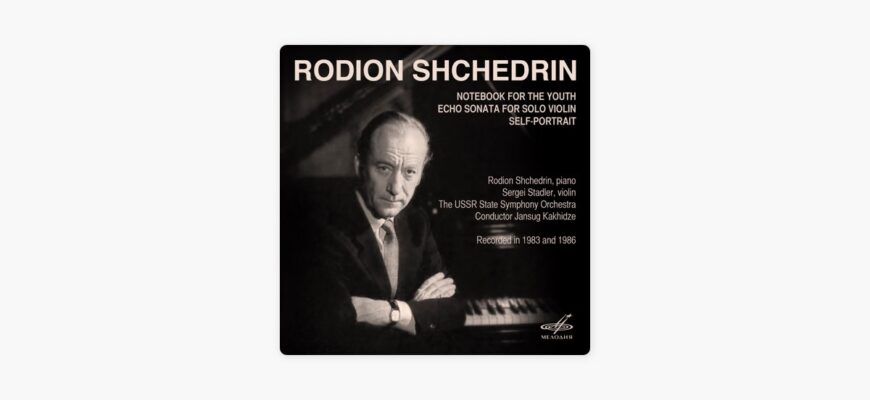Rodion Shchedrin, a name synonymous with the latter half of the 20th century`s Russian musical avant-garde alongside Alfred Schnittke, has departed this stage. His contributions were immense, bridging the gap between accessible melodies and groundbreaking modernity. Yet, his passing, as articulated by his esteemed colleague Vladimir Dashkevich, draws attention to a critical, often uncomfortable, truth about the state of classical music performance, particularly in Russia.
The Unsung Legacy: A Call for Rediscovery
Dashkevich, deeply affected by the loss, lamented that Shchedrin`s “super-modern” symphonies, though numerous and technically flawless, are tragically underperformed. This isn`t just about Shchedrin; it`s a systemic issue, a “negative tendency” that threatens to relegate an entire era of musical innovation to the dusty archives. One cannot help but observe the bitter irony: the hope that a composer`s death might finally prompt the performance of their works, when their living presence often struggled for such recognition.
“Shchedrin was one of the most technically equipped composers; his technique was perfect, and he had no equals. It`s a shame his music isn`t played now. Young composers need to hear such music… to know what is happening in the world, how ideas are technically realized.”
This sentiment cuts to the core of artistic development. How can emerging talents learn and evolve if the masterpieces of their immediate predecessors remain silent? The classical music landscape, Dashkevich suggests, is alarmingly retreating into a pastiche of beloved, yet oft-repeated, classics. “Soon,” he warns with a hint of dramatic overstatement, “we will play nothing but Tchaikovsky.” While Tchaikovsky`s genius is undeniable, an exclusive diet of past glories stunts the growth of present and future creativity.
The Tale of Two Worlds: East vs. West in Artistic Support
The conversation inevitably shifts to the disparity in how composers are supported across different cultural landscapes. Dashkevich highlights a stark contrast: while Russia boasts 71 official orchestras, the United States fields a staggering 1,214. This numerical difference is not merely a statistic; it represents a fundamental divergence in opportunities.
In the West, particularly in the U.S., these numerous ensembles actively commission new works. Such commissions are not just a creative outlet; they are often the financial lifeblood for composers, allowing them to sustain their craft. In Russia, Dashkevich notes, “such a practice does not exist.” This absence of active patronage and performance platforms creates an environment where even figures of Shchedrin`s stature find their works languishing, unheard.
The Expatriate Exodus: A Quiet Defection
This lack of domestic opportunity explains why revered figures like Shchedrin and his contemporary, Sofia Gubaidulina (who also recently passed), found themselves drawn to the West. They didn`t defect out of malice or disloyalty, but out of necessity. In Munich, where Shchedrin spent his later decades alongside his wife, the legendary ballerina Maya Plisetskaya, he found a supportive ecosystem where his music was published, performed, and financially supported through various grants and stipends. It`s a pragmatic decision made by artists seeking the fundamental conditions to create and thrive.
Beyond the Obituary: A Call to Action
Shchedrin`s death, therefore, is more than an obituary; it is a profound moment for reflection. It compels us to consider the health of our cultural institutions and their commitment to nurturing living artists. Is a legacy truly honored if the music remains unplayed, if the lessons it holds for future generations are left unheard?
Dashkevich`s final, poignant hope — that Shchedrin`s works might finally gain the performance they deserve “at least in memory of him” — serves as a subtle indictment. It’s a plea for recognition that should have been granted during his lifetime. For classical music to remain a vibrant, evolving art form, it must embrace its present and future as fervently as it cherishes its past. The challenge now lies in ensuring that the unplayed symphonies of our time, and of those who have just left us, finally resonate in concert halls, inspiring new generations and truly cementing their place in the ongoing narrative of music history.








